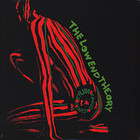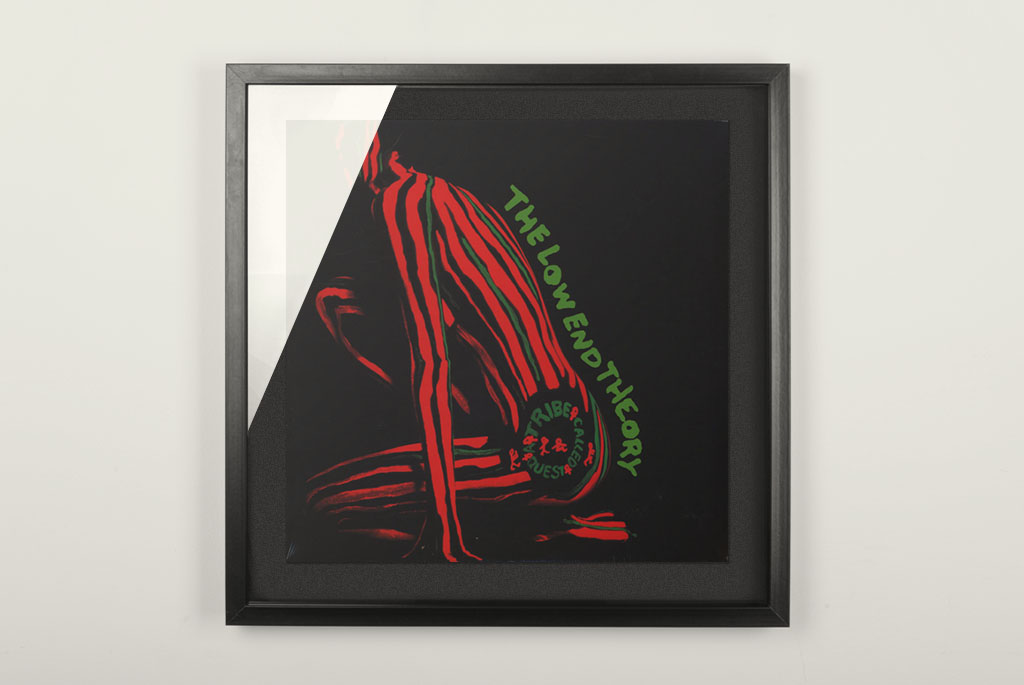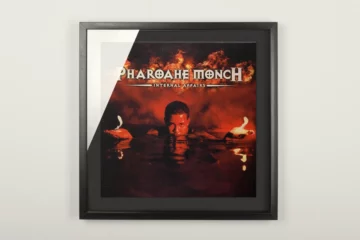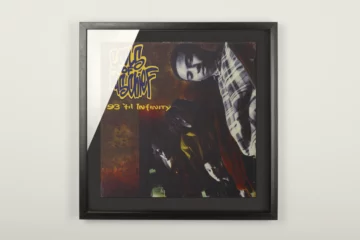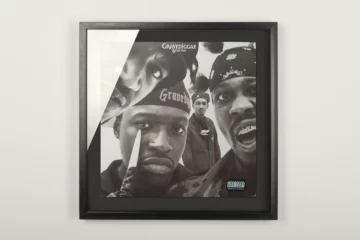This album may trigger a bit of plaintiveness. Even when listening to it again after some time in between, it remains so unrivalled that a sense of loss may mingle with the enthusiasm. However, it cannot be ruled out that this is also due to some projective fallacy. After all, you cannot dig out a record you bought 30 years ago without having grown older yourself.
In 1991, A Tribe Called Quest were a young trio from Queens. Their fourth original comrade-in-arms, Jarobi White, had taken his leave after the release of their debut album from 1990, »People’s Instinctive Travels and the Paths of Rhythm«, in order to become a cook. Which left the rappers Kamaal Ibn John Fareed aka Q-Tip and Malik Izaak Taylor aka Phife Dawg, with DJ Ali Shaheed Muhammad handling production duties.
Along with De La Soul and the Jungle Brothers, A Tribe Called Quest formed part of the Native Tongues collective which also included Queen Latifah and Monie Love. One of their concerns was a return to their African-American heritage, with lyrics predominantly defined by a sense of humour and reflectiveness. „Weak voices“, as the German pop theoretician Diedrich Diederichsen would characterize them. Other than gangsta rap, they did not feature any of the male aggressive self-assertion on pain of armed force. The whole tone rather elegant than gruff. On »The Low End Theory« they found a perfect form for message, flow, and beats.
For their selection of samples they primarily resorted to jazz. The first title »Excursions« for example starts with an elastic syncopated acoustic bass ostinato, followed by Q-Tip countering inconspicuously with a rolling flow: „Back in the days when I was a teenager / Before I had status and before I had a pager“. It is only after eight lines that the beat kicks in. The lyrics drop cues such as »Africa« being »The Motherland«, their basic attitude summed up by Q-Tip this way: „Get in the zone of positivity, not negativity / Cuz we gotta strive for longevity“.
Which sits well with a healthy dose of self-confidence: »The abstract poet prominent like Shakespeare« – in the nineties, A Tribe Called Quest were the commercially most successful of the Native Tongues. Political undertones are especially apparent in the sample from »Time« (referred to as »Time Is Running Out« on the cover of »The Low End Theory«) from proto hip hop artists The Last Poets who in their day had emerged from the Civil Rights Movement.
»Get in the zone of positivity, not negativity / Cuz we gotta strive for longevity«.
The production of the songs is spare throughout without appearing overly homogenous. Last but not least this is due to the sequencing without interruptions between the tracks, the groove occasionally pulling tighter, allowing for moments of rest in between, only to build up again, like a jazz session almost completely without jazz musicians. »Verses From the Abstract« being the sole exception, with the bass sound not coming from another record, but as an original contribution from jazz titan Ron Carter.
The reality depicted by A Tribe Called Quest does not stop short of their own business: »Rap Promoter« and »Show Business« comment on the trade, with the line »All that glitters ain’t gold« being among the politer ones. It is interesting to note in this context that there is a mix of explicit lyrics and self-censorship. Whereas Phife Dawg, in »Show Business« at least, pronounces the word »motherfuckers« in full length, he and Q-Tip elsewhere leave a pause in relevant phrases to be completed by the listeners.
Independent of their choice of words, in their lyrics Q-Tip as well as Phife Dawg – who passed away in 2016 – went against the misogynist mainstream in hip hop. »The Infamous Date Rape« is a prominent example on »The Low End Theory«, and something a few of today’s rappers could still learn a lesson from.
The record has aged, if at all, only in this respect: It might require a little clarification in terms of the history of communication technology. The »pager« mentioned above in the lyrics of »Excursions« was popular in the United States, above all New York, in the nineties as a device for receiving messages, a kind of portable answering machine that could be accessed from payphones, by now a half-forgotten precursor of mobile phones. With their song »Skypager« amply devoted to this machine, A Tribe Called Quest have raised a monument to this »bridge technology«.
Ultimately, part of the magnificence of »The Low End Theory« is due to the fact that the record, unlike, say, some playlists assembled by algorithms, does not end in the same mood it started in. For „Scenario“, the finale, A Tribe Called Quest crank things up in a wild manner, fired by splattering beats, and lend the microphone to an array of guests, bidding over one another with rhythmic freestyling.
The culmination is the concluding rap by Busta Rhymes who, in perfect free jazz manner, condenses his seemingly unbridled outbursts to anarchic word art. Not as a musical equivalent to violence, but as a vocal expression of freedom.
